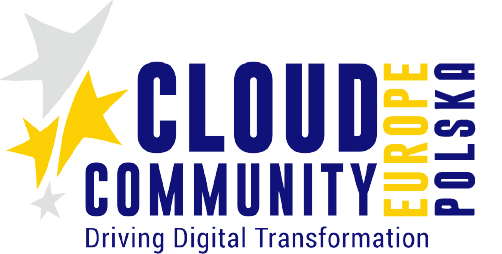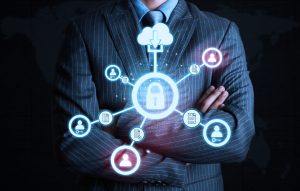In October, the city of Krakow will host the CYBERSEC Forum 2017, one of the top cybersecurity conferences in Europe. The CYBERSEC Forum is a two-day event engaging 130 speakers and more than 1,000 delegates from all over the world.
On 9–10 October 2017 ICE Krakow Congress Centre will welcome delegates to the 3rd European Cybersecurity Forum – CYBERSEC 2017, one of the most important conferences of this kind in Europe. The event will gather policy-makers, leading industry experts, global private sector leaders, investors and technology startups. The aim of the Forum is to develop practical and innovative solutions to strengthen cybersecurity in the European Union and NATO.
Strengthening the capacity to prevent cyber attacks is becoming one of the growing problems within the European Union. Only in the last four years, the economic impact of cybercrime has risen fivefold.
According to the European Commission President, Jean-Claude Juncker, despite the progress Europe have made in recent years, we are still not prepared enough to face growing cyber threats and it is imperative to create new tools to increase network security. Cooperation at the international level is crucial in order to tackle cybercrime. The solutions proposed by the European Commission are enclosed in the new Cybersecurity Act (includes new EU Cyber Security Agency, new European certification scheme). They will become also the main topic for the discussion taking place in the coming months in Brussels.
The CYBERSEC Forum Conference is gathering the largest number of top cybersecurity professionals in the world and is becoming an important part of the debate on the key challenges and cyber threats facing the European Union.
The conference organised by the Kosciuszko Institute will gather professionals for drafting government and corporate cybersecurity policies. Among the conformed conference speakers are Melissa Hathaway – former cybersecurity advisor in two U.S. presidential administrations of George W. Bush and Barack Obama; Sir Julian King – European Commissioner for the Security Union; Michael Chertoff – former Secretary of the U.S. Homeland Security; Ambassador Sorin Ducaru – NATO Assistant Secretary General for Emerging Security Challenges; Marietje Schaake – member of the European Parliament (ALDE), founder and member of the Digital Agenda Intergroup in the EP; Ambassador Marina Kaljurand – Chair of the Global Commission on the Stability of Cyberspace and former Minister of Foreign Affairs of Estonia; Jānis Sārts– Director of the NATO Strategic Communications Centre of Excellence; Jan Neutze – Director of Cybersecurity Policy at Microsoft EMEA; Alastair Teare – CEO of Deloitte Central Europe.

The organisers of CYBERSEC Forum have scheduled more than 80 panel discussions, workshops, presentations and special events. As in previous years, the debates will be held around four thematic streams: State, Defence, Future, and Business. This year, invited experts will discuss the main challenges of digital transformation and its impact on the key social, political, and economic processes related to national security. The main takeaway points of these debates will be used to formulate recommendations aimed at fostering Europe’s economic development and strengthening the EU’s position in the global cybersecurity market.
The main topic of discussions in the State Stream will be activities carried out in cyberspace such as disinformation, manipulation, or provocation, which constitute a growing threat to the foundations of democracy, such as election processes. The Defence Stream will focus on issues related to the building of NATO’s cyber defence capabilities, including the deployment of new technologies in the defence sector and robotization of the battlefield.
The leading theme of the Business Stream, which end consumers should find particularly relevant, will be the cybersecurity of the Internet of Things and the question of responsibility for user safety that rests with the suppliers of IoT solutions. The discussions will also address the security of key sectors comprising critical infrastructures, particularly the healthcare sector, and the challenges arising from the implementation of the NIS Directive.
The Future Stream will concentrate on the opportunities and risks resulting from the increasingly widespread use of new technologies such as artificial intelligence, as well as numerous discussions on improving business innovation. The problem of privacy of network users will also be given attention.
CYBERSEC Forum will also have a special startup zone – Innovation Stage. The space will be open for business to hold debates, networking sessions and interviews with investors, innovators and business leaders throughout the two-day conference. Innovation Stage is part of the CYBERSEC HUB project initiated by the Kosciuszko Institute during last year’s CYBERSEC Forum edition. The initiative reflects the think-tank’s long-term commitment and its integrated approach to strengthening the sector of cybersecurity products and services and supporting the most innovative startups in their expansion into foreign markets.
During the conference, an international agreement will be signed between centres of innovation in cybersecurity. It will mark the launch of first of its kind, global collaborative platform of 14 centres called Global Ecosystem of Ecosystems Platform in Innovation and Cybersecurity (EPIC). Representatives of cyber innovation ecosystems from 10 countries will take part in a joint press conference accompanying the inauguration of the EPIC dedicated portal. The Kosciuszko Institute is one of the parties to the agreement.
|
|
|
The CYBERSEC Forum is an annual conference dedicated to strategic aspects of cybersecurity in Europe. The event acts as a collaborative platform for governments, international organisations, and key private sector organisations. Concise Courses has honoured the first edition of the CYBERSEC Forum by ranking it among the top five cybersecurity conferences to attend in Europe.
Watch the preview of the upcoming event: https://www.youtube.com/watch?time_continue=2&v=pNzpJIowGJ4 Find out more here: https://cybersecforum.eu/en *** |
|
HONORARY PATRONS: The Ministry of Digital Affairs, the National Security Bureau, the Ministry of Economic Development, the Minister of Foreign Affairs, the Ministry of National Defence, the Ministry of Science and Higher Education, the Ministry of Infrastructure and Construction, the Minister of the Interior and Administration, Polish Armed Forces, the Ministry of Energy, the National Public Prosecutor’s Office, the Supreme Audit Office, the Mayor of the City of Krakow Jacek Majchrowski, Cracow University of Technology, the University of Science and Technology AGH, War Studies University, the Jagiellonian University, the Office of Electronic Communications STRATEGIC PARTNERS Alior Bank, Cisco, Deloitte, Microsoft, Orlen, PZU, T-Mobile, IBM, Pekao SA MAIN PARTNERS |
|
Asseco Poland, Exatel, EY, Google, PGZ, Raytheon, Tauron, Thales, Verint PARTNERS COIG, HP, MARR, Maruta, PGNiG, PKP Cargo, Polish Data Center Association, SANS MEDIA PARTNERS: Polskie Radio, Polska Agencja Prasowa, TVP Info, Rzeczpospolita, Agerpres, EUobserver, Cyber Defense Magazine, the Cyberwire, Computer Weekly, Sieci, wgospodarce.pl, Do Rzeczy, 300polityka.pl, Wprost, Digital Forensics Magazine, WysokieNapięcie.pl, Grupa Defence24, CaleaEuropeana, Biznes Alert, ITwiz, Kraków.pl, Content Mania Public task co-financed by the Ministry of Foreign Affairs of the Republic of Poland under the Public Diplomacy 2017 competition and the component „The civil and municipal dimension of Poland’s foreign policy 2017”. ABOUT THE KOSCIUSZKO INSTITUTE Founded in 2000, the Kosciuszko Institute is a leading non-governmental and non-profit think tank and research institute. Our mission is to act in the interest of the socio-economic development and security of Poland as a proactive member of the European Union and NATO. Specialising in the development of strategic recommendations, our Institute lays down the path for the advancement of key public policies in order to provide substantive support for Polish and European decision-makers. |



